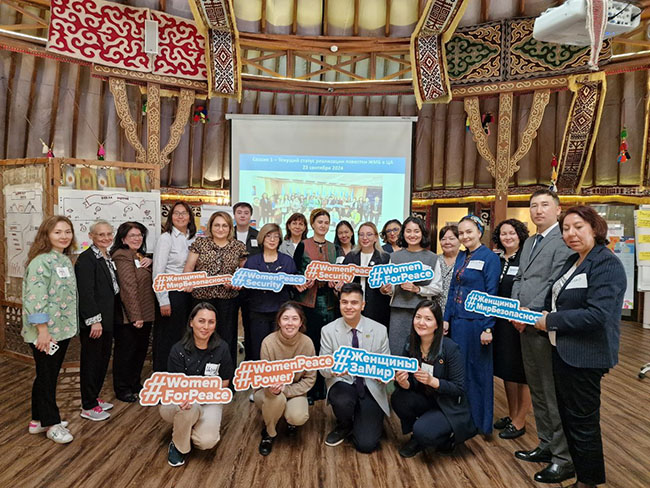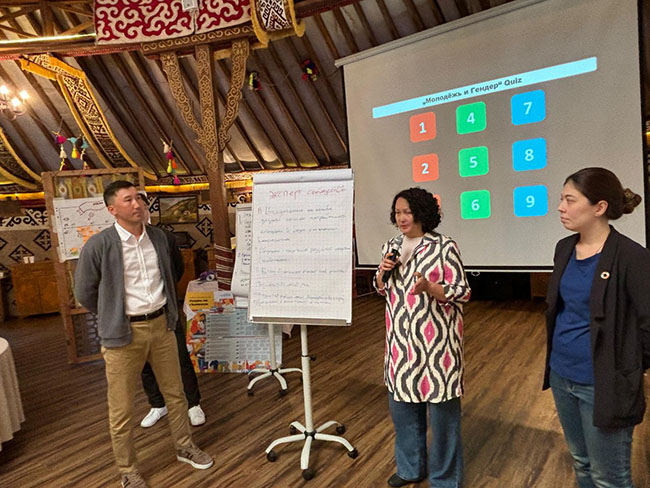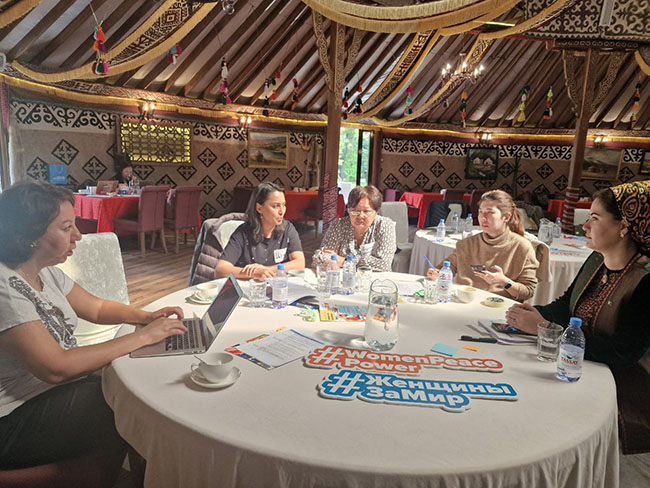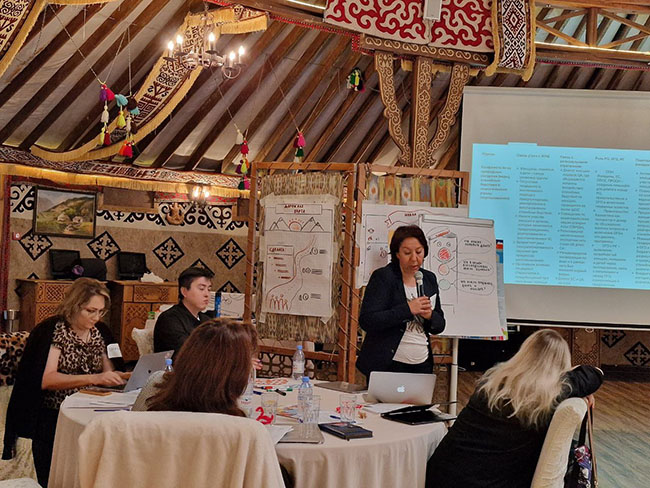No.59 (503) September 2024
EXPERT MEETING ON DEVELOPING A ROADMAP FOR "ADVANCING THE WOMEN, PEACE AND SECURITY AGENDA IN CENTRAL ASIA"
More than twenty years ago (2000), the UN Security Council adopted a resolution (S/RES/1325) on Women, Peace and Security (WPS), reaffirming the important role of women, their equal participation and full involvement in all efforts to maintain and promote peace and security. Resolution 1325 was followed by ten other resolutions that set out the commitments of the UN, its Member States and partners to ensure that the needs of women and girls affected by conflict are met and that peace is achieved in a systemic and sustainable manner.
In February 2020, "UN Women" initiated a series of dialogues in Europe and Central Asia with civil society and women's organizations on WPS. The consultation in Central Asia provided an opportunity to voice and highlight the needs of women and youth, discuss perspectives of women and solutions that underpin decisions on WPS, including the implementation of national action plans on resolution 1325 in the Central Asian region. While the WPS agenda is gaining momentum globally, its implementation in Central Asian countries remains uneven. The region faces growing security threats, including border disputes, as well as the impacts of water scarcity and climate change, which disproportionately affect women and girls. As a result of the meeting on WPS hosted by “UN Women” in Almaty on 16 October, it was decided to develop a regional action plan on WPS..
In this context, a meeting of key stakeholders from Central Asian countries - WPS coordinators and experts on WPS diplomacy/climate/water and civil society representatives, was held in Almaty on 23-24 September. The focus was on expert discussions to advance the approach to implementing the WPS agenda and the priorities of the subregional roadmap for implementing the WPS agenda.

The meeting reviewed the current progress and challenges in implementing the WPS agenda in the region; identified gaps and new opportunities for cooperation; discussed ways and benefits of a coordinated regional approach to the WPS agenda, including the development of a roadmap; reviewed the process of integrating environment/climate (new priorities) into the WPS agenda; also identified key priorities and actions for practical implementation of the WPS agenda in Central Asia, with a focus on regional cooperation, and discussed regional monitoring mechanism to assess the implementation of the WPS agenda in the region to ensure accountability and track progress.
The representative of SIC ICWC, A. Galustyan, spoke about the main climate related threats and challenges to security in Central Asia, the existing initiatives and policies on climate security in Central Asia, the possibility of integrating new priorities to improve the effectiveness of WPS policies. She presented the work of SIC ICWC within the project "Regional mechanisms for the low-carbon, climate-resilient transformation of the energy-water-land nexus in Central Asia” on the establishment of a Centre of Excellence, with the involvement of women and youth.
Development of the roadmap will continue.


